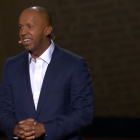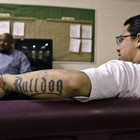
Which Bills Survived Crossover Day in the Georgia Assembly?
|
A proposed overhaul of Georgia's juvenile code remains alive at the State Capitol, but bills addressing school attendance and over-medicating foster children died this week as the Legislature completed its 30th day. Or, if not legally dead, the bills are on life-support. The General Assembly designates Day 30 of each year's session as "Crossover Day," the deadline by which the state House or Senate must pass a bill and send it over to the other chamber. Bills that don't make it are dead, but can be revived by tacking the language onto another measure that remains under consideration. The Senate's version of the juvenile-code rewrite -- a mammoth, five-year, 243-page reorganization and update of laws dealing with delinquent, unruly and neglected children -- died Wednesday without a vote by the full chamber.








